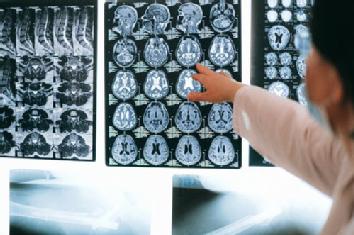Neuroscience

How can computational methods create new diagnostics and treatment?
Can we use these methods help us to improve health across the lifespan?
Neuroscience at the University of Warwick focusses on a number of key areas.
These include the brain’s response to acute injury, the influence of experience on neuronal structure, function and cognition, and the homeostatic regulation of cardiovascular activity, respiration and appetitive behaviour.
These areas span both human health and disease, and encompass both early development and later life. Using electrophysiological and optical techniques, as well as amperometric biosensors and computational methods developed at Warwick, Warwick Neuroscience addresses the cellular and molecular underpinnings of complex neurobiological processes with a view to both appreciate the fundamentals of nervous system function, and to deliver novel diagnostics and therapeutics.
Publications:
'Mitogen and stress-activated protein kinase 1 negatively regulates hippocampal neurogenesis'Authors: Oladiran Morè Olateju, Arthur J Lorenzo, C Simon and Bruno G Frenguelli, 2021
Journal: Neuroscience
'Pannexin-1-mediated ATP release from area CA3 drives mGlu5-dependent neuronal oscillations'
Ján Lopatář, Nicholas Dale,and Bruno G. Frenguelli, 2015
Neuropharmacology
'Purines : from diagnostic biomarkers to therapeutic agents in brain injury'
Authors: Bruno G. Frenguelli and NicholasDale, 2020
Neuroscience bulletin
'Hypothalamic tanycytes generate acute hyperphagia through activation of the arcuate neuronal network'
Matei Bolborea, Eric Pollatzek, Heather Benford, Tamara Sotelo-Hitschfeld and Nicholas Dale, 2020
Proceedings of the National Academy of Sciences of the United States of America, 117 (25), pp. 14473-14481


